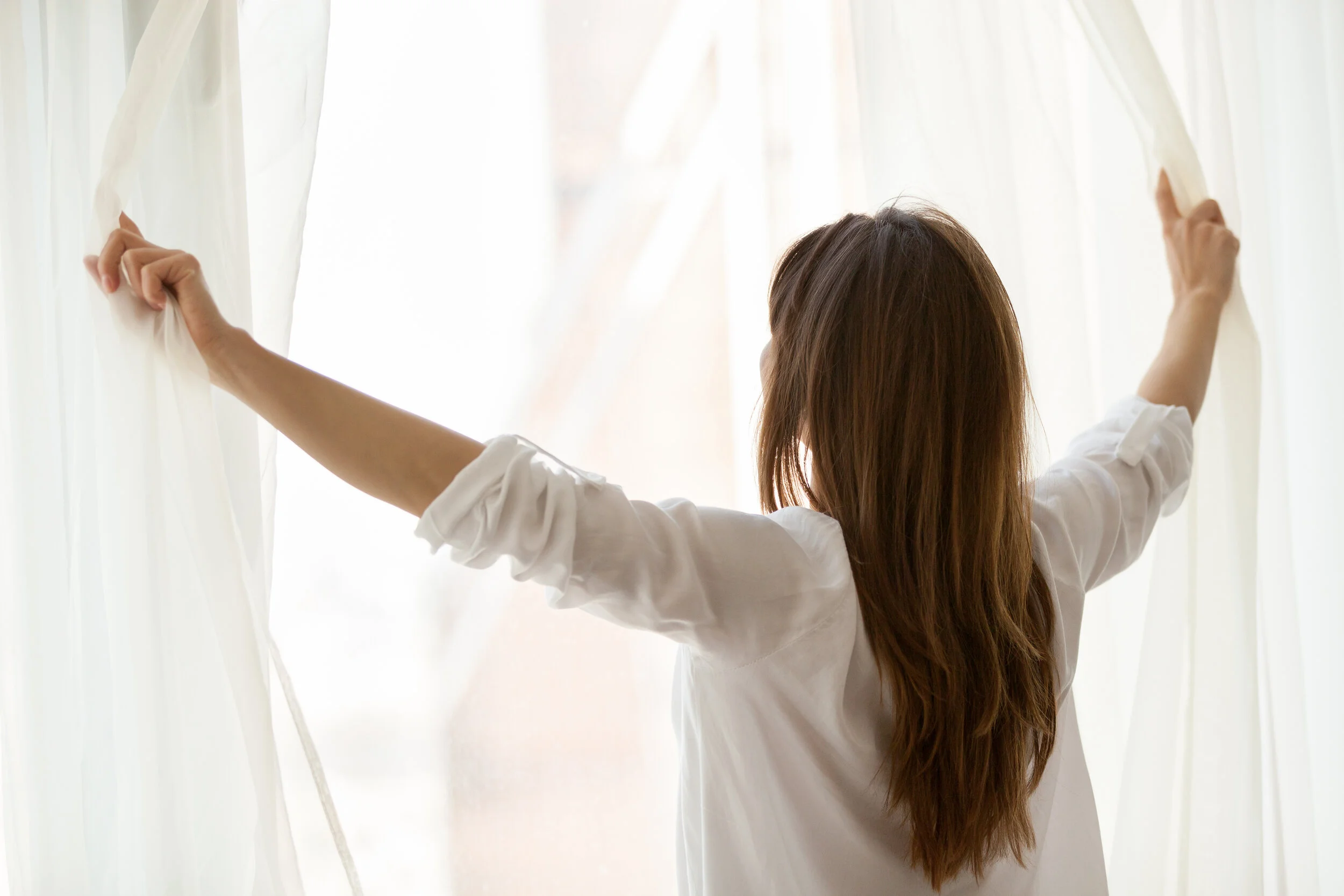There’s an exhilaration that comes with the New Year that I look forward to with each change of the calendar. It’s a time to reflect, to refresh, and to reset.
If you’re like me, that means setting goals and intentions for the year to direct my vision and actions.
But you can’t drive a car on an empty tank.
That’s why we need to ensure we’re getting not just the right amount of sleep we need, but the best quality of sleep we can achieve, too. Doing so sets us up for success in all areas of our lives — not the least of which is our list of personal goals for this year.
I want to help you get the rest you need to be your best this 2025. Research shows that sleep improves our cognition, boosts our immunity, regulates our hormones and balances our emotions. When these things are working in tip-top shape, you have the energy and motivation to accomplish what you set out to do, and to do it day after day.
Making Sleep a Priority will Help You Meet Your Goals for the New Year
By: Kelly Murray, Certified Adult Sleep Coach, FDN-P
1
Sleep Improves Cognition
If you find yourself waking up at 3AM, which is common among people who experience insomnia, you’re most likely missing out on your precious REM sleep, which we ALL desperately need for cognitive function. REM stands for “Rapid Eye Movement” and it’s a critical part of our sleep that happens in the later stages of our sleep cycle. It’s when we dream.
When we’re dreaming, our brains are taking and storing information, organizing it, re-configuring it, understanding it, and stowing it away. It’s basically how our brain solidifies its learning. A study conducted among college students at Baylor University during finals week showed that the students who slept at least 8 hours of sleep saw better results than those who did not.
2
Sleep Boosts Immunity
When we sleep, our body has the rest period it needs to do some serious maintenance work. It takes this opportunity to release its viral-fighting armor consisting of cytokines, antibodies and white blood cells. These powerful little soldiers get to work and fight off infections and inflammation. This is how our body heals with rest. It’s also why, when we’re sick, our body basically forces us into submission, telling us to slow down and rest so that it can fight the infection.
When we’re sleep deprived, not only is our body deprived of the opportunity to fight infection and inflammation, but we also do it less well. Research shows that adults who sleep less than 7 hours per night are 3x more likely to develop a cold than those who get more than 8 hours of sleep per night.
With the new vaccine rollout, it’s also important to note that getting adequate sleep improves our body’s response to vaccines. In a study of participants receiving the Hepatitis B vaccine, it was found that those who slept 6 hours or less each night were 11x less likely to be protected against the virus than those who slept more than 7 hours per night.
3
Sleep Regulates Hormones
Lack of sleep throws our hormones out of sync. Two hormones in particular, ghrelin and leptin, are significantly affected by sleep deprivation. And that’s not good — because ghrelin and leptin are the guys that control our appetite. Ghrelin is the “go” hormone that tells our body when it’s hungry and leptin is the “stop” hormone that tells our body when it’s full.
Those extra hours when you coulda/woulda/shoulda been sleeping are now going to be filled with ghrelin and leptin production, causing you to overeat and an increase in overall calorie consumption.
Research shows that we consume about 385 more calories per day when we get 3.5-5.5 hours of sleep compared to 7-12 hours of sleep. Considering it can take 30 minutes to burn 300 calories by running, that’s a significant difference. Do yourself a favor and allow yourself the extra sleep. You’ll end up consuming less calories and you’ll have more energy to put towards your day.
4
Sleep Balances Emotions
Grouchiness, irritability and mood swings after a poor night’s sleep is a real thing, and there’s research to back it. When the brain is sleep deprived, the amygdala experiences an increase in stimulation. Since the amygdala processes emotions (especially fear, anger and rage), this increased stimulation puts the brain on high alert and, in effect, makes us “moodier”. Everything starts to feel important and we’re unable to distinguish what matters and what things we can brush off. We end up overreacting to every little thing.
Here’s a list of 5 Simple Ways to Reduce Your Cortisol to Improve Sleep to help with this→
As you make your list of goals for 2025, be sure to add “Get Better Quality and Quantity of Sleep” to it. It’s one of the best ways to ensure you achieve them.
Here are some simple (yet effective!) tips to help you get started:
Set a consistent bedtime and a wake-up time for yourself and stick to them — even on the weekends. This will help your body get into a rhythm and will become easier over time.
Move your body at least 30 minutes per day. If you can’t work out, go for a walk. If you can’t walk, stretch. If all else fails, throw some music on and have a dance party with your kids. All movement counts!
Don’t drink caffeine after noon. Caffeine has a half life of about 5 hours. That means if you have a cup of coffee at noon, half of that caffeine is still in your system at 5pm, and the rest won’t be gone until 10pm. So keep it to a minimum! Find out how caffeine and sleep interact in my blog post all about it here→
Don’t drink alcohol late at night. The rule of thumb is to give yourself a full sober hour pre-bedtime per drink. So 1 drink = 1 sober hour. 2 drinks = 2 sober hours. Plan accordingly! Take a look at my blog post debunking the myth on alcohol and sleep here→
Create a sleep sanctuary that is cool, dark, and comfortable. It should feel like a little cave. Check out my blog post about creating the perfect sleep sanctuary here→
Avoid digital screens at least 1-2 hours before bedtime. The blue and green light emitted from these devices mimics that of the sun, producing cortisol and stimulating your body to keep you awake.
Adopt your own bedtime routine. Bedtime routines aren’t just for kids! See #5 on this list of 5 Simple Ways to Reduce Your Cortisol to Improve Sleep to get some tips on conducting your bedtime routine.
Try a bath instead of a shower. It’s relaxing, it’s proven to reduce tension in muscles, and the after-effect when you get out is a reduction in your core temperature, which you need to fall asleep.
Meditate. There are many forms of meditation, it doesn’t have to be sitting still (though that is a fantastic way to do it!) Try the Calm app for several variations of meditations.
Don’t just lie there. If you can’t sleep, leave your bed and do a relaxing activity for twenty minutes, then try to sleep again. We want to avoid associating stress and that “awake-all-night” feeling with your bed and instead, start to develop feelings of safety, coziness, and sleepiness with your bed.
Let’s make 2025 your year of refresh, reset, and rest.
If you’ve tried all the above and you’re still struggling with sleep, there could be a bodily reason behind your sleep issues. When that’s the case, I highly recommend functional lab testing to look at your hormones, gut health, thyroid, mineral deficiencies, and food sensitivities. Lab testing is part of what I offer for my adult clients, and if you’re interested, let’s talk about it. I offer complimentary discovery calls that you can schedule right here →
For more tips, you can read more articles on improving your sleep in my sleep blog. I have a ton of great resources.
My mission is to help you get the rest you deserve to be your best.









